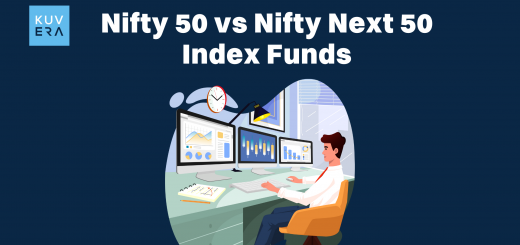 Swapnil Kendhe is founder, SEBI registered investment adviser (RIA) and a fee-only financial planner at vivektaru.com. He charges a fixed annual fee for financial planning and investment advice directly from his clients.
Swapnil Kendhe is founder, SEBI registered investment adviser (RIA) and a fee-only financial planner at vivektaru.com. He charges a fixed annual fee for financial planning and investment advice directly from his clients.
Defensive investing is ideal for most investors
Most investors believe that to do well as an investor, they must invest in stocks, use different categories of mutual funds, search for the best performing funds or PMS schemes, regularly review and change the portfolio based on changing economic and market conditions, and generate a high return as they can. Some investors try to do this on their own, while others want their advisers to do this job for them. Unfortunately, this is a wrong notion of how investing must be done.
There are two approaches to investing. One is the enterprising or active approach and other the defensive or passive approach. Benjamin Graham talks about these two approaches in his book ‘The Intelligent Investor’. What most investors believe how good investing is done is enterprising investing.
Successful enterprising investing requires high-quality knowledge of investing. We are talking about the fund manager level of knowledge here. Most investors lack the interest, aptitude and the drive required to reach such a level of knowledge. Knowledge alone is also not enough to do the enterprising investing; you need loads of time as well, to do the research. Retail investors with their full-time jobs and superficial understanding of investing should stay away from this approach with or without an adviser.
Why should retail investors avoid enterprising investing even with an adviser? Because it is difficult to find an adviser competent enough to help investors do enterprising investing successfully. Even if investors find one, the time and effort the adviser must put to help them do the enterprising investing are huge. If the adviser charges a fee for the hours of his effort, he would become unaffordable for the size of most retail investor portfolios. Even after paying the higher fee, there is no guarantee that the return would be higher than what can be generated by following the simple approach of defensive or passive investing.
What is the defensive or passive approach to investing?
In the defensive or passive approach, the investor places his chief emphasis on avoidance of serious mistakes and losses. His second aim is to be free from effort, annoyance and the need for making frequent decisions. He creates a portfolio that can run on autopilot and doesn’t require frequent monitoring and changes.
A simple low-cost index fund is good enough for equity allocation in a defensive investor’s portfolio. It helps him beat the equity return of most professional investors.
A defensive investor uses the debt side of the portfolio to provide stability to the portfolio, not to generate a higher return. He keeps credit risk and interest rate risk as low as possible. He makes optimum use of government products like Employee Provident Fund, Public Provident Fund and Sukanya Samriddhi Yojana. To maintain the liquidity in the portfolio he uses bank fixed deposits of government banks or bigger and well run private sector banks and liquid funds.
A defensive investor doesn’t believe that he can dynamically manage asset allocation of his portfolio based on changing economic and market conditions. He decides the target asset allocation and rebalances the portfolio once in a year. He doesn’t over concentrate the portfolio in any one asset class.
Defensive investing is simple, boring and generates little excitement; but it works. And it works better than most smart-sounding approaches of investing. It takes little time and effort on part of the investor; all that is required is discipline.
Investing at the retail investor level is more about avoiding mistakes than generating higher returns. Retail investors can avoid most investing mistakes if they appreciate that they can never have the time and knowledge required for the enterprising investing. Defensive investing is ideal for most of them.
** Opinions expressed are the authors and should not be construed as investment advice.
Interested in how we think about the markets?
Read more: Zen And The Art Of Investing
Watch/hear on YouTube:
Start investing through a platform that brings goal planning and investing to your fingertips. Visit kuvera.in to discover Direct Plans and start investing today.
#MutualFundSahiHai, #KuveraSabseSahiHai!











Bhaskar Aglave
May 26, 2020 AT 03:04
Thanks Shri Swapnil
But what happens when the index remains sideways for years like from 1992 to 2002? Jenuine question.
Prasanth Prabhu
May 28, 2020 AT 04:17
Great article and absolutely agree with thr author.